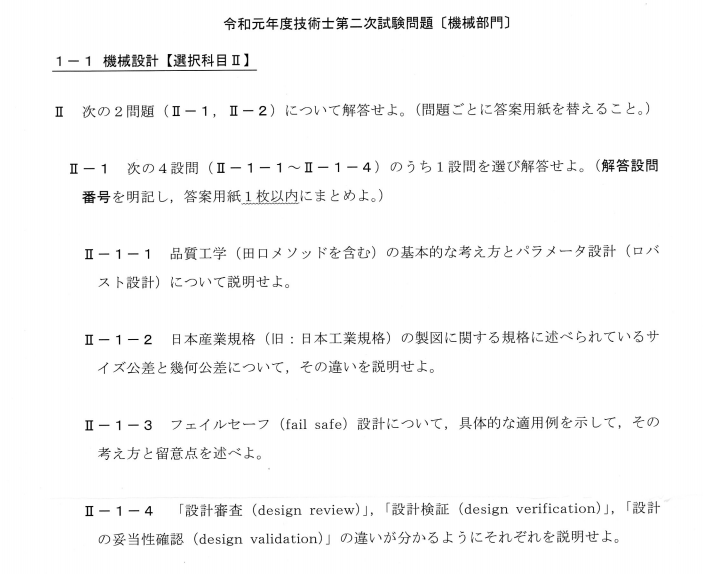民主主義
オードリー・タン、E・グレン・ウェイル著
Pluralityの紹介と協力の呼びかけ: 協調的多様性と民主主義のためのテクノロジー
私たちは今、旅に出ようとしています。過去半世紀にわたり、私たちは多くの皆さんと協力しながら、金融化や中央集権的な人工知能に焦点を当てたテクノロジーの未来に関する通常の物語に代わるものを開発してきました。私たちが「Plurality(複数性)」と呼ぶこのテクノロジーは、社会的・文化的な違いを超えた協力を認識し、尊重し、力を与えるものである。以下の概要でもう少し詳しく知ることができる。私たちは、Pluralityが民主主義社会の繁栄を支える自然な技術パラダイムであり、今日の世界における根強い分裂の多くを克服できると信じています。私たちはこの可能性を世界に伝え、それを実現するための多様で協調的な投資と実験を刺激したいと考えています。そして、私たちはあなたの助けを求めている。
私たちの正確な計画は、「多元性」研究の進歩や現実的な課題とともに発展していくでしょうが、私たちは、この本を創作し、配布し、財政的に支援する方法において、この本のアイデアを具現化することを約束します。すべての素材は、クリエイティブ・コモンズ・ライセンスの中で最も寛容なカテゴリーに属する、フリー・カルチュラル・ワークとなります。私たちは、この本をgitのような構造で公開し、コミュニティからオープンに編集や研究の支援を募り、プルリクエストに優先順位をつけ、最終的には本の内容を管理するために、貢献してくれる人たちを募る予定です。私たちは、Plural/Quadratic Fundingの助成金、物理的およびデジタルで購入された本のコピーへのNFTの「署名」、本に基づいた講演者/コンサルタントとしてのグレンへのアクセスのためのSALSA/Harberger NFTなど、様々な整列されたWeb3ネイティブなメカニズムを使用して、本を利用できるようにするための経済的な費用をサポートします。私たちは、Soulbound Token(SBT)を使って本に貢献する様々な役割を代表し、集めた資金の処分も含め、物理的な出版後のコンテンツに関する選択を管理する基盤としてこれらを使用し、本のコミュニティをおおよそ分散型自律組織(DAO)に変換する予定です。私たちはProtocol Labs(PL)と緊密に提携し、これを実現するための技術基盤を構築し、ウェブ3時代の新しい出版モデルを発明する一助となることを期待している。
同時に、多元主義者として、私たちは「ウェブ3ネイティブ」だけにリーチしたいわけではありません。そのため、私たちはこれを美しい物理的なオブジェとし、標準的な出版やメディアのチャンネルで広くアクセス、配布、レビューされるようにしたいと考えています。したがって、ハッカーやライターだけでなく、デザイナー、ストーリーテラー、マーケティング担当者、翻訳者、出版社など、私たちと一緒に働いてくれる人たちが必要なのです。そして、これらの中には、投機的な潜在的キャッシュフローに関する統治権よりも、より個人的な権利を好む人がいることも理解しており、他の次元で私たちの目標とビジョンを共有するパートナーとの交渉に前向きである。いずれにせよ、オードリーもグレンも、彼らの雇用に伴う法的責任を遵守し、いかなる収益も私たちの使命と、私たちが築き上げたいと願うコミュニティを支援することを保証するため、このテキストに関する仕事に対する報酬やロイヤリティを受け取ることはない。
私たちは間もなく、公の場での執筆と参加管理をサポートするソフトウェア・プラットフォームをデビューさせる予定ですが、それ以前に貢献したい方法をお気づきの方は、お気軽にグレンまでご連絡ください。テクノロジーの未来は、私たちが共に想像し、説明することで、私たちが大切にしている価値観を尊重し、サポートすることができるのです。
OVERVIEW
Technology and democracy are at war: technology bolsters authoritarian surveillance and corrodes democratic institutions, while democracies fight back with constraining regulation and public sector conservatism. Yet this conflict is not inevitable; it is a choice we have made to invest in anti-democratic technologies, such as Artificial Intelligence (AI) and Cryptocurrencies. A few places, such as the Ethereum community, Estonia, the state of Colorado and especially Taiwan, have instead focused on technologies that empower diverse collaboration and have seen democracy and technology flourish together. This book, by the leaders of this new paradigm of Plurality, shows for the first time how every technologist, policymaker, business leader and activist can harness it to build a more collaborative, diverse, and productively democratic world.
When Uber arrived in Taiwan, its presence was divisive, just as it has been in much of the world. But rather than social media pouring fuel on this flame, the vTaiwan platform that one of us developed as a minister there empowered citizens opining on the issue to have a thoughtful, deliberative conversation with thousands of participants on how ride hailing should be regulated. This technology harnessed statistical tools often associated with AI to cluster opinion, allowing every participant to quickly digest the clearest articulation of the viewpoints of their fellow citizens and contribute back their own thoughts. The views that drew support from across the initial lines of division rose to the top, forming a rough consensus that ensured the benefits of the new ride hailing tools while also protecting workers’ rights and was implemented by the government. This process has been used to resolve dozens of contentious issues in Taiwan and is rapidly spreading around the world to governments, cooperatives and blockchain communities.
Yet vTaiwan just scratches the surface of how technology can be designed to perceive, honor and bridge social differences for collaboration. New voting and financing rules emerging from the Ethereum ecosystem can reshape how we govern the public and private sectors; immersive virtual worlds are empowering empathetic connections that cross lines of social exclusion; social networks and newsfeeds can be engineered to build social cohesion and shared sensemaking, rather than driving us apart. And, as Taiwan’s experience has shown, the potential social benefits are vast, enabling the world’s best response to a range of recent crises from the Covid pandemic to misinformation to the creating broadly shared prosperity.
Yet while a few countries and ecosystems have put tens of millions of dollars into such technologies, the rest of the world has poured hundreds of billions into AI and Crypto, which pursue fundamentally different goals. AI aims to automate away human participation, centralizing power, strengthening autocracies, and undermining the middle class. Speculative cryptocurrencies, addictive social media and escapist “metaverses” have undermined the social fabric, reinforced social divisions, spread an infodemic and proliferated criminality. It is little surprise, then, that the countries that have invested in these technologies see democracy and technology as enemies.
But it is not too late to change paths: we can invest in technologies that establish digital human rights, empower pluralism and flourish in democratic societies, allowing them to outperform authoritarianism and hyper-capitalism. We can invest to give every person an inalienable right to digital personhood with a new generation of decentralized identity (DID) technologies that empower every person to travel, transact, conduct business, and participate in democratic communities free from centralized surveillance. We can make freedom of association real in the digital world with community-managed and accountable social networks and ledgers that form the town halls and public squares of the future while bridging the growing divides between groups. We can secure digital property rights by creating the public markets and main streets of the future with cryptographic technologies for the secure and privacy-preserving sharing of data, computation, and storage across peers, free from the control of platform monopolists. We can secure the right to commerce with government-supported, privacy-preserving, internationally interoperable digital currencies. And we can enable every citizen to access these rights by making high speed internet a human right and digital competence education core to public school curricula.
概要
テクノロジーは権威主義的な監視を強化し、民主主義的な制度を腐敗させる一方、民主主義国家は規制や公共部門の保守主義を抑制することで反撃している。しかし、この対立は避けられないものではない。人工知能(AI)や暗号通貨など、反民主主義的なテクノロジーに投資することは、私たちが選択したことなのだ。イーサリアムのコミュニティ、エストニア、コロラド州、そして特に台湾のようないくつかの場所は、代わりに多様なコラボレーションに力を与えるテクノロジーに焦点を当て、民主主義とテクノロジーが共に栄えるのを見てきた。本書は、この「多元性」という新たなパラダイムのリーダーたちによるもので、技術者、政策立案者、ビジネスリーダー、活動家の誰もが、より協力的で多様性に富み、生産性の高い民主的な世界を構築するために、どのように多元性を活用できるかを初めて示している。
ウーバーが台湾に上陸したとき、その存在は世界の多くの地域でそうであったように、分裂を引き起こした。しかし、ソーシャルメディアがこの火種に油を注ぐのではなく、私たちの一人が台湾の大臣として開発したvTaiwanプラットフォームが、この問題について意見を述べる市民を支援し、ライドヘイリングをどのように規制すべきかについて、何千人もの参加者と熟慮に熟慮を重ねた対話を行った。このテクノロジーは、AIによく関連する統計ツールを活用して意見をクラスター化し、すべての参加者が仲間の市民の視点を最も明確に表現したものを素早く咀嚼して、自分の考えを投稿できるようにした。当初の対立軸を越えて支持を集めた意見が上位に上がり、大まかなコンセンサスが形成され、労働者の権利を守りつつ新しい配車ツールの利点が確保され、政府によって実施された。このプロセスは、台湾で何十もの争点を解決するために使用され、政府、協同組合、ブロックチェーン・コミュニティに急速に世界中に広がっている。
しかしvTaiwanは、テクノロジーがどのように社会的差異を認識し、尊重し、協力のために橋渡しをするように設計されうるかについて、表面をかすめたに過ぎない。イーサリアムのエコシステムから生まれた新しい投票と融資のルールは、私たちが公共部門と民間部門を統治する方法を再構築することができる。没入型の仮想世界は、社会的排除の境界線を越えて共感的なつながりを強化する。ソーシャルネットワークとニュースフィードは、私たちを引き離すのではなく、社会的結束と共有されたセンスメイキングを構築するように設計することができる。そして、台湾の経験が示すように、潜在的な社会的利益は膨大であり、コビトのパンデミックから誤報、広く共有された繁栄の創出まで、最近のさまざまな危機に対する世界最高の対応を可能にしている。
しかし、一部の国やエコシステムがこのようなテクノロジーに数千万ドルを投じる一方で、それ以外の国はAIや暗号通貨に数千億ドルを投じている。AIは人間の参加を自動化し、権力を中央集権化し、独裁体制を強化し、中産階級を弱体化させることを目的としている。投機的な暗号通貨、中毒性のあるソーシャルメディア、逃避的な「メタバーズ」は、社会構造を弱体化させ、社会分裂を強化し、インフォデミックを蔓延させ、犯罪を増殖させている。このようなテクノロジーに投資してきた国々が、民主主義とテクノロジーを敵対視するのは当然のことである。
デジタル人権を確立し、多元主義に力を与え、民主主義社会を繁栄させ、権威主義や超資本主義を凌駕することを可能にするテクノロジーに投資することはできる。私たちは、中央集権的な監視から解放され、すべての人が旅行し、取引し、ビジネスを行い、民主的なコミュニティに参加できるようにする新世代の分散型アイデンティティ(DID)技術によって、すべての人にデジタル人格への不可侵の権利を与えるために投資することができる。私たちは、コミュニティが管理し、説明責任を果たすソーシャル・ネットワークと台帳によって、デジタル世界における結社の自由を実現することができます。プラットフォーム独占者の支配から解放され、ピア間でデータ、計算、ストレージを安全かつプライバシーを保護しながら共有するための暗号技術によって、未来のパブリック・マーケットとメインストリートを創造することで、デジタル財産権を確保することができる。私たちは、政府がサポートし、プライバシーを保護し、国際的に相互運用可能なデジタル通貨によって、商業の権利を確保することができる。そして、高速インターネットを人権とし、デジタル・コンピテンシー教育を公立学校のカリキュラムの中核とすることで、すべての市民がこれらの権利にアクセスできるようにすることができる。
Securing these fundamental digital human rights makes pluralism in the digital world not just possible, but natural. In Taiwan, the ideographic characters for “digital” and “plural” are the same: 數位. The experience there and in similar ecosystems has shown how these foundations, even in nascent form, promotes flourishing democracy. Secure and private identities allow citizens to participate in thoughtful deliberations and reasoned compromise, as in vTaiwan, without facing attacks from trolls and bots. Private data sharing allows neighborhoods and communities to provide services (from pollution monitoring to mask availability maps) for themselves rather relying on proprietary platforms. Open and reliable payments allow creative forms of crowdfunding to support shared goods without heavy-handed bureaucracies. Peer-to-peer reputation systems empower civil society to combat misinformation, often with humor, while maintaining vibrant and open speech.
Furthermore, while these tools can transform the public sector around the world, they are not only relevant or even primarily, relevant to national democracies. Instead, they offer a way for every organization, from churches to corporations, to foster more productive and dynamic cooperation. Companies can empower intrapreneurship and cross-divisional infrastructure faster than ever before. Private and sovereign data sharing can contain and cure disease. A new media landscape can simultaneously be more trustworthy and consensual on key facts than ever before while empowering voices marginalized by traditional gate-keepers. Plurality is thus not for politics and government alone, any more than the internet was for the military and universities that first built it. Instead, it is a new technological paradigm that can transform every sector and the lives of every individual for the better if we learn how to harness it.
But just like the internet and other transformative technologies, Plurality will only thrive to the extent we invest in it. The internet began as a network established by the United States Defense Department’s Advanced Research Projects Agency (ARPANET) to experiment with new decentralized user interface designs. Yet the vision of ARPANET’s founders, like JCR Licklider, on which ours is closely modeled, was only very partially realized because it never mobilized the public and international support and multisectoral investment needed to follow it through. Instead, as Licklider predicted, it was mostly captured by monopolists who stymied its potential. Today we have the chance to correct that mistake and build a future where our technologies express and empower our highest ideals, rather than degrading them. Every activist, artist, technologist, citizen, policymaker and organization has a key role to play in the struggle for that future.
When we see “internet of things”, let’s make it an internet of beings.
When we see “virtual reality”, let’s make it a shared reality.
When we see “machine learning”, let’s make it collaborative learning.
When we see “user experience”, let’s make it about human experience.
When we hear “the singularity is near”, let us remember: the plurality is here.
CHAPTER OUTLINE
Below is an outline divided into parts and chapters. Each chapter lists estimated page length and gives a summary of the argument of the relevant chapter, in a proportion of roughly one sentence to each 5 pages. All of this is a first draft sketch.
Preface: Seeing Plural (5 pages):
We will open the book with a poetic-spiritual reflection on the omnipresence of plurality at every scale of reality and what an extension of this into our technological future might feel like.
Introduction: The War Between Democracy and Technology (10 pages):
The headline-grabbing conflicts between tech and democracy at once reflect and conceal a deeper tension between the directions technology has developed and the principles of a democratic society. While specific technologies that have come out of the AI and web3 traditions have significant potential, they are fundamentally anti-democratic political ideologies rather than technologies, committed to the centralization of power and extreme individualism respectively.
こうした基本的なデジタル人権を確保することは、デジタル世界における多元主義を可能にするだけでなく、自然なものにする。台湾では、「デジタル」と「多元的」の表意文字は同じ「數位」である。台湾や類似のエコシステムでの経験は、これらの基盤が、たとえ初期段階であっても、いかに民主主義の繁栄を促進するかを示している。安全でプライベートなアイデンティティは、vTaiwanのように、市民が荒らしやボットからの攻撃に直面することなく、思慮深い議論や理性的な妥協に参加することを可能にする。プライベートなデータ共有により、近隣地域やコミュニティは、独自のプラットフォームに依存することなく、自分たちでサービス(汚染監視からマスク利用可能マップまで)を提供することができる。オープンで信頼性の高い支払いは、強引な官僚主義に頼ることなく、創造的なクラウドファンディングの形で共有財を支援することを可能にする。ピアツーピアのレピュテーション・システムは、活発でオープンな言論を維持しながら、市民社会がしばしばユーモアを交えて誤った情報と闘う力を与える。
さらに、これらのツールは世界中の公共部門を変革することができる一方で、各国の民主主義国家にのみ関係するものでもなければ、第一義的に関係するものでもない。むしろ、教会から企業まで、あらゆる組織がより生産的でダイナミックな協力を促進する方法を提供する。企業は、イントラプレナーシップと部門横断的なインフラストラクチャーをかつてないほど迅速に強化することができる。私的かつ主権的なデータ共有は、病気を封じ込め、治療することができる。新しいメディアは、従来のゲートキーパーから疎外された声をエンパワーすると同時に、重要な事実についてこれまで以上に信頼性が高く、合意的なものにすることができる。インターネットが、それを最初に構築した軍や大学のためのものであったのと同じように、多元性は政治や政府だけのためのものではない。むしろ、それを活用する方法を学べば、あらゆる分野とあらゆる個人の生活をより良いものに変えることができる新しい技術パラダイムなのだ。
しかし、インターネットやその他の変革的テクノロジーと同様、「多元性」は、私たちがそれに投資する範囲でのみ発展する。インターネットは、米国国防総省の高等研究計画局(ARPANET)が新しい分散型ユーザー・インターフェース・デザインを実験するために設立したネットワークとして始まった。しかし、リックライダーのようなARPANETの創設者のビジョンは、ごく部分的にしか実現されなかった。その代わりに、リックライダーが予言したように、その可能性を阻む独占企業によってそのほとんどが取り込まれてしまった。今日、私たちはその過ちを正し、テクノロジーが私たちの最高の理想を劣化させるのではなく、表現し、力を与える未来を築くチャンスを手にしている。活動家、アーティスト、技術者、市民、政策立案者、組織の誰もが、そのような未来への闘いにおいて重要な役割を担っている。
モノのインターネット」を見るとき、それを「存在のインターネット」にしよう。
仮想現実」を見るとき、それを共有された現実にしよう。
機械学習」を見たら、協調学習にしよう。
ユーザー・エクスペリエンス」を目にしたら、それを人間の体験にしよう。
シンギュラリティは近い」という言葉を耳にしたら、「多元性はここにある」ということを思い出そう。
各章の概要
以下は、パートと章に分かれた概要である。各章は推定ページ数を記載し、5ページにつき1文の割合で、関連する章の論旨を要約している。これらはすべて初稿のスケッチである。
序文 複数を見る(5ページ):
現実のあらゆるスケールにおける複数性の遍在と、これを我々の技術的未来に拡張することがどのように感じられるかについて、詩的・精神的な考察でこの本を開く。
はじめに 民主主義とテクノロジーの戦争(10ページ):
見出しを飾るテクノロジーと民主主義の対立は、同時に、テクノロジーが発展してきた方向性と民主主義社会の原則との間のより深い緊張を反映し、また隠蔽している。AIやウェブ3の伝統から生まれた特定のテクノロジーには大きな可能性があるが、それらはテクノロジーというよりむしろ、基本的には反民主主義的な政治イデオロギーであり、それぞれ権力の中央集権化と極端な個人主義に傾倒している。
Plurality
Living in a Plural World (15 pages): From the most basic physical level of quantum mechanics to the greatest heights, “beauty, growth, progress – all result from the union of the unlike.” (Star Trek quote). These all therefore depend on maintaining and proliferating diversity, while also strengthening communication and cooperation across difference. Information and communications technology can map the dynamic landscape of social relationships and facilitate new connections and organizations that span such networks.
The Lost Dao (15 pages) The idea of a network society, where individuals and social groups are both dynamic intersections of each other, originated in the theories of sociologists, economists and philosophers like Henry George, Georg Simmel and John Dewey. This vision was the foundation of what become the internet, but was never articulated with philosophical clarity, allowing it to be forgotten and superseded by other philosophies, focused on imitation of human intelligence or the liberation of individuals from social bonds. This book aims to recover that lost vision, show how it has and can succeed and chart a path forward for it to flourish.
A View from Yu Shan (20 pages) Taiwan sits at the intersection of the continental plates of Eurasia and America, and at the ideological intersection of the Chinese centralized AI ideology, the American hyper-capitalist ideology and European values-based regulatory states. As the physical fault line has pushed the highest point in Taiwan, Yu Shan, higher, so too these ideological tensions have pushed Taiwan to develop a pluralist synthesis that allowed it to become the most technologically advanced and most actively democratic country in the world. This chapter will give a vivid and emotive portrait of the life in Taiwan’s digital democracy from multiple vantage points: that of the minister, that of a civic activist, that of an ordinary digitally disengaged citizen, that of a businessperson, etc. It will also briefly tell the history of how Taiwan’s digital democracy emerged, drawing parallels and contrasts to the circumstances of other liberal democratic countries today.
Freedom
Human Rights as an Operating System (5 pages) Just as industrial democracies are built on the foundation of universal human rights, digital democracies depend on the universal defense of human rights in the digital realm. Access to these capabilities is currently limited and proprietary, undermining the potential of Plurality. Each chapter in this section will begin with a short sketch of an interaction that the realization of this right will enable.
Personhood (10 pages) The rights to life, travel and personal recognition are the most fundamental of rights and yet the identity systems that make these possible online are controlled by a few proprietary platforms. Decentralized and pluralistic identity systems that are now emerging from the web3 space can empower a range of new functionalities that take the internet as far beyond its current state as the internet took prior modes of communication.
Association (10 pages) Social networks map association in the digital age, while blockchains provide the digital equivalent of public squares. If these can be extended by public-interested investment to enrich the reputation and social relationships these convey, they have the potential to extend the reach of social relationships far broader beyond today and substitute for many of the functions traditionally assigned to anonymous market exchange.
Commerce (5 pages) With the participation of legitimate institutions (such as central banks, governments and banks), digital currencies can have a network structure that allows both the benefits of sovereignty and privacy and of international interoperability, freeing payments both from the chaos of cryptocurrencies and the inefficient monopolies that currently dominate payments.
Property (10 pages) While the fundamental assets of the digital world (data, computation and memory) are created in a distributed manner, the lack of open standards for securely sharing them has concentrated power in a few big tech companies. Public investment in developing open standards for secure sharing in these areas will allow civil society and business groups to achieve far more ambitious collaboration, more efficiently, with greater trust, privacy, and sovereignty.
Access and education (5 pages) Online human rights are only relevant to those who can access and navigate cyberspace. High speed broadband access and digital competence, not just literacy, education must therefore be universal human rights.
複数性
複数の世界に生きる(15ページ): 量子力学の最も基本的な物理レベルから最も偉大な高みに至るまで、"美、成長、進歩はすべて、似て非なるものの結合から生まれる"。(スタートレックの引用)。したがって、これらはすべて、多様性を維持し、増殖させながら、違いを超えたコミュニケーションと協力を強化することにかかっている。情報通信技術は、社会関係のダイナミックな景観をマッピングし、そのようなネットワークにまたがる新たなつながりや組織を促進することができる。
失われた道(15ページ) 個人と社会集団がともにダイナミックに交差するネットワーク社会という考え方は、ヘンリー・ジョージ、ゲオルク・ジンメル、ジョン・デューイのような社会学者、経済学者、哲学者の理論に端を発する。このビジョンは、後にインターネットとなるものの基礎となったが、哲学的に明確に表現されることはなく、人間の知性の模倣や、社会的束縛からの個人の解放に焦点を当てた他の哲学に取って代わられ、忘れ去られてしまった。本書は、失われたヴィジョンを取り戻し、それがどのように成功し、また成功しうるかを示し、それが花開くための道筋を描くことを目的としている。
玉山からの眺め(20ページ) 台湾はユーラシア大陸とアメリカ大陸のプレートの交差点に位置し、中国の中央集権的AIイデオロギー、アメリカの超資本主義イデオロギー、ヨーロッパの価値観に基づく規制国家のイデオロギー的交差点にある。物理的な断層が台湾の最高地点である玉山をより高く押し上げたように、このようなイデオロギー的緊張が台湾を押し上げ、世界で最も技術的に進歩し、最も積極的な民主主義国家となることを可能にした多元主義的総合を発展させたのである。本章では、台湾のデジタル・デモクラシーにおける生活を、大臣、市民活動家、デジタルに無関心な一般市民、ビジネス・パーソンなど、複数の視点から生き生きと情感豊かに描く。また、台湾のデジタル・デモクラシーがどのようにして生まれたのか、その歴史についても簡単に紹介し、今日の他の自由民主主義国の状況との類似点や対比を示す。
自由
オペレーティングシステムとしての人権(5ページ) 産業民主主義が普遍的人権の基盤の上に成り立っているように、デジタル民主主義もデジタル領域における人権の普遍的擁護に依存している。このような能力へのアクセスは現在制限されており、また独占的であるため、多元性の可能性が損なわれている。このセクションの各章は、この権利の実現が可能にする相互作用の短いスケッチから始まる。
人格権(10ページ) 生命、旅行、個人的認識に対する権利は最も基本的な権利であるが、オンライン上でこれらを可能にするIDシステムは、少数の独占的プラットフォームによって管理されている。現在web3空間から生まれつつある分散化された多元的なアイデンティティ・システムは、インターネットが以前のコミュニケーション様式を奪ったように、インターネットを現在の状態から遥かに超えたものにする様々な新しい機能性に力を与えることができる。
アソシエーション(10ページ) ソーシャルネットワークはデジタル時代のアソシエーションをマッピングし、ブロックチェーンは公共の広場に相当するものをデジタルで提供する。もしこれらが公益的な投資によって拡張され、これらが伝える評判や社会的関係を豊かにすることができれば、社会的関係の範囲を今日よりもはるかに広く拡張し、従来匿名の市場取引に割り当てられていた機能の多くを代替する可能性がある。
商業(5ページ) 正規の機関(中央銀行、政府、銀行など)が参加することで、デジタル通貨は主権とプライバシーの利点と国際的な相互運用性の両方を可能にするネットワーク構造を持つことができ、暗号通貨の混乱と現在決済を支配している非効率な独占の両方から決済を解放することができる。
財産(10ページ) デジタルの世界の基本的な資産(データ、計算、メモリ)は分散して作られるが、それらを安全に共有するためのオープンスタンダードがないため、一部の大手テック企業に権力が集中している。これらの分野で安全な共有のためのオープンスタンダードを開発するための公共投資は、市民社会と企業グループが、より大きな信頼、プライバシー、主権を持ちながら、より効率的に、はるかに野心的なコラボレーションを達成することを可能にする。
アクセスと教育(5ページ) オンライン人権は、サイバースペースへのアクセスとナビゲートができる人にのみ関係する。したがって、高速ブロードバンドアクセスと、識字率だけでなくデジタルコンピテンシー教育は、普遍的人権でなければならない。
Democracy
Democracy as Applications (10 pages) Democratic institutions are applications that can run on these foundations and have three fundamental components: deliberation, compromise and pluralism. These institutions can not only transform the public sector but also the private sector, democratizing business, and depend in turn on such democratized financing models. Each chapter will begin with a vignette of ways technologies are being used today to achieve digital democracy.
Deliberation (5 pages) Advances in statistics (often associated with AI) make it possible “broad listening”, where millions of people can hear the distilled essence of the distribution of opinion of their peers, empowering democratic deliberation at scale.
Compromise (5 pages) Advances in mechanism design (often associated with web3) make compromise and horse-trading at scale possible, allowing direct democracy that doesn’t fall into the traps of tyranny of the majority.
Pluralism (5 pages) Social networks allow us to trace social cleavages and divisions, allowing us to both empower “local” communities to self-govern and to actively create incentives for bridging these divides.
Finance (5 pages) New forms of social organization emerging from the web3 community allow us to transcend the market-state divide by creating an emergent social sector that can provide democratic services at scale.
Impact (Intro 5 pages):
Democracy has gotten a bad reputation in much of the world for failing to deliver on critical global challenges. This is because it hasn’t kept pace with technology; when it does, Taiwan’s experience shows it can outperform authoritarian regime. Each chapter will highlight statistics illustrating the success possible in countries like Taiwan and Estonia that have made digital democracy a reality.
Media (5 pages) Misinformation can be contained while maintaining vibrant free speech with algorithms that surface content with surprising consensus and active participation of civil society groups that harness humor.
Health (5 pages) Pandemics and other public health crises can be identified and responded with agility and minimal economic costs if civil society can rapidly design systems for allocating scarce health resources and targeting chains of transmission.
Environment (5 pages) Environmental harms, from the local to the global, can quickly be identified without invading privacy if citizens can form horizontal “data coalitions” that can bargain with governments to live up to their responsibilities and ensure community members do the same.
Jobs (5 pages) By harnessing digital technologies for human engagement rather than replacement, digital technologies can create better jobs than they eclipse, leading to naturally broadly shared prosperity and participation.
Forward
Institutions (20 pages) The large-scale investment necessary to realize Plurality will require fusing together funding sources from a variety of sectors and countries to combine and transcend the motives of national interest, profit and charity. Experimentation with diverse communities across many geographic locations will have to closely tie to the standardization that can achieve international scale, harnessing a network of digital ministers like that in Taiwan. Private sector businesses, academic institutions, charitable organizations, and activists will all have to be drawn into contributions lured by the prestige and vision of the future that comes with contributing to the future of open standards. While ambitious, this plan largely extends the history of the internet stimulated by the network of user research laboratories funded by the Advanced Research Projects Agency (ARPANET), extending it to our current multipolar world.
Action (10 pages) While success will require coordination at the highest levels, every citizen has a role to play to build the momentum to make this possible. We will show how hackers, investors, businesspeople, activists, artists, voters all can be part of a movement to make our tools serve our values rather than be dictated by them.
民主主義
応用例としての民主主義(10ページ) 民主的な制度は、これらの基盤の上で実行可能な応用例であり、熟議、妥協、多元主義という3つの基本的要素を備えている。これらの制度は、公共部門だけでなく、民間部門を変革し、ビジネスを民主化し、民主化された資金調達モデルに依存することができる。各章ではまず、デジタル・デモクラシーを実現するために今日テクノロジーがどのように利用されているかを紹介する。
熟議(5ページ) 統計学の進歩(しばしばAIと関連づけられる)により、何百万人もの人々が仲間の意見分布の抽出されたエッセンスを聞くことができる「広範な傾聴」が可能になり、民主的な熟議が大規模に強化される。
妥協 (5ページ) メカニズム設計の進歩(多くの場合web3と関連している)により、妥協と馬の取引が大規模に可能になり、多数派専制の罠に陥らない直接民主主義が可能になる。
多元主義 (5ページ) ソーシャルネットワークは、社会的な亀裂や分裂を追跡することを可能にし、「ローカル」コミュニティが自治する力を与え、これらの分裂を埋めるためのインセンティブを積極的に生み出すことを可能にする。
金融 (5ページ) Web3コミュニティから生まれた新しい社会組織の形態は、民主的なサービスを大規模に提供できる新興の社会セクターを生み出すことで、市場・国家の分裂を超越することを可能にする。
インパクト(イントロ5ページ):
民主主義は世界の多くの地域で、重要なグローバルな課題を解決できないという悪い評判を得ている。これは、民主主義がテクノロジーに追いついていないためであり、追いついていれば、台湾の経験は権威主義体制を凌駕できることを示している。各章では、台湾やエストニアのようなデジタル民主主義を実現した国で可能な成功を示す統計を紹介する。
メディア(5ページ) 意外なコンセンサスを得てコンテンツを表示するアルゴリズムと、ユーモアを活用する市民社会グループの積極的な参加によって、活発な言論の自由を維持しながら誤報を封じ込めることができる。
健康(5 ページ) 市民社会が、乏しい健康資源を配分し、感染の連鎖をターゲットにするためのシステ ムを迅速に設計することができれば、パンデミックやその他の公衆衛生上の危機は、機敏かつ 最小限の経済コストで特定され、対応することができる。
環境(5 ページ) 市民が水平的な「データ連合」を形成し、政府が責任を果たすよう交渉し、地域社会の人々 が同じことをするよう保証することができれば、プライバシーを侵害することなく、地域から 世界に至るまで、環境への害を迅速に特定することができる。
雇用 (5ページ) デジタル技術を代替ではなく、人間との関わりのために活用することで、デジタル技術は食いつぶすのではなく、より良い雇用を創出し、自然と広く共有された繁栄と参加をもたらすことができる。
前へ
制度(20ページ) 「多元性」の実現に必要な大規模投資には、さまざまなセクターや国からの資金源を融合させ、国益、利益、慈善といった動機を組み合わせ、超越することが必要である。多くの地理的な場所にまたがる多様なコミュニティでの実験は、台湾のようなデジタル大臣のネットワークを活用し、国際的な規模を達成できる標準化と密接に結びつかなければならないだろう。民間企業、学術機関、慈善団体、活動家のすべてが、オープンスタンダードの未来に貢献することで得られる名声と未来像に魅せられ、貢献するようになるはずだ。野心的ではあるが、この計画は、高等研究計画局(ARPANET)が資金提供したユーザー研究所のネットワークによって刺激されたインターネットの歴史を、現在の多極化した世界へと大きく拡張するものである。
アクション(10ページ) 成功には最高レベルでの調整が必要だが、これを可能にする機運を高めるために、市民一人ひとりが果たすべき役割がある。ハッカー、投資家、実業家、活動家、アーティスト、有権者など、あらゆる人々が、ツールに左右されることなく、我々の価値観に奉仕するための運動に参加できることを示す。




